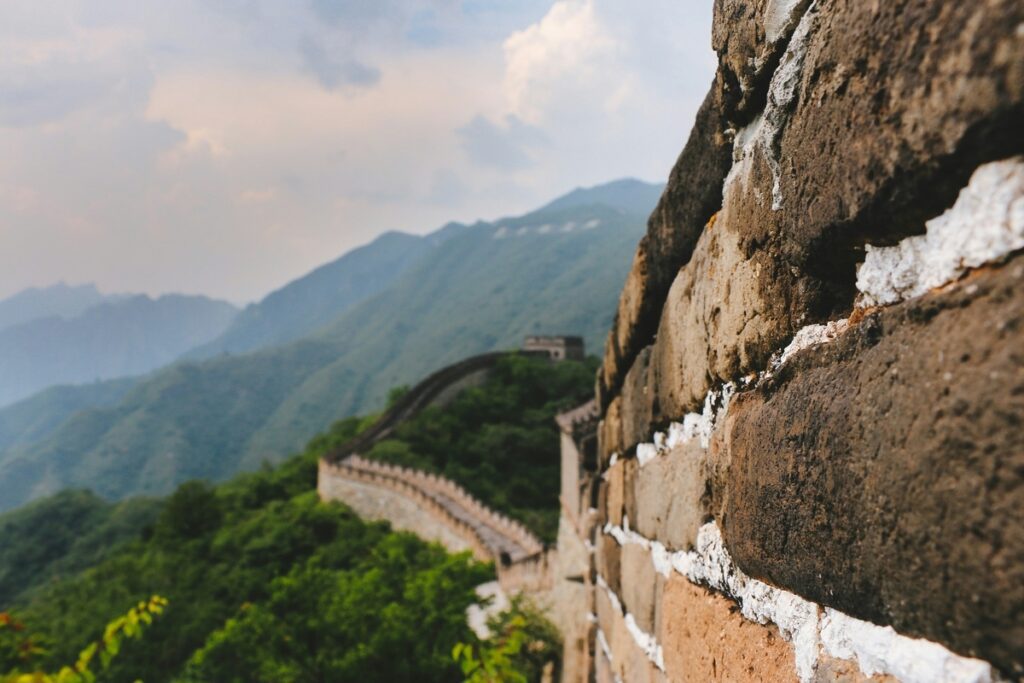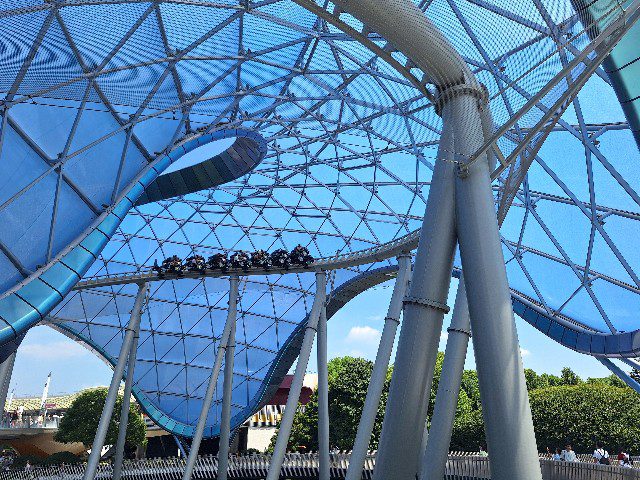In the previous article, I shared my experiences with the daily living at Wenchang Lou. In this final installment, I’ll introduce my interactions with the people of Tianluokeng Tulou cluster, especially the heartwarming encounters through tea.
Connections at the Tea Shop in Buyun Lou

Visiting the tea shop inside Buyun Lou, the only square Tulou in Tianluokeng cluster
He Chao, the driver who took me to Tianluokeng Tulou cluster, mentioned, “My sister-in-law runs a tea shop, would you like to visit?” He was referring to a shop on the first floor of Buyun Lou. Taking advantage of this opportunity, I decided to visit right away.

Inside the shop, the proprietress brewed different types of tea one after another: flower tea, floral black tea, Tieguanyin tea… We enjoyed the changing flavors and aromas through first and second brews while engaging in lively tea conversations. She shared stories about the tea plantations surrounding the Tulou and mentioned that her father was also a tea farmer.

Intriguing tea sets with unique patterns
True to her words that “everyone here lives with tea,” in Fujian Province, especially in this region, tea seems to be more than just a beverage. When I purchased the floral black tea with its memorable sweet fragrance, she added generous samples of Tieguanyin and oolong tea as gifts, saying, “I want your friends in Japan to know about Fujian tea too.”

Tea plantations spread throughout Fujian Province
Afterward, she offered to show me around the interior of Buyun Lou. Though the residential areas are normally off-limits to tourists, she took me up to the third floor, explaining I was “an invited guest.” The sunset view from this square Tulou had a different charm compared to the circular Wenchang Lou. The symmetrical structure of the building contrasting with the sunset-dyed sky created an unforgettable landscape.

The view from the third floor of Buyun Lou was exceptional
Over tea, we discussed my plans for the next day. When I mentioned my intention to visit the Yongding Tulou cluster, she responded, “Oh, in that case…” and proceeded to offer insider advice that only a local would know. Planning my itinerary with her and He Chao felt like discussing travel plans with close friends. Her parting words, “Let me know what you think afterwards,” warmed my heart.

The floral black tea I purchased. I fell in love with its sweet fragrance.
With the Wenchang Lou Guesthouse Owner
Later, after dinner, the guesthouse owner Mr. Huang, who had returned late, invited me: “How about some tea?” When I first saw him, his sharp features and cool demeanor had given me the impression he might be unapproachable. However, after actually talking with him, that first impression was completely overturned.

Mr. Huang brewed tea meticulously with a calm manner, occasionally showing a gentle smile. In addition to running the guesthouse, he was also involved in the tea business. He seemed to embody the business acumen of the Hakka people, sometimes referred to as the “Jews of the East.”

The way Mr. Huang carefully warmed the teaware and brewed the tea reflected practices passed down through generations. Following Fujian customs, he continuously refilled my cup before it was empty. Like a Japanese “wanko soba” experience, his hospitality knew no bounds.
As we continued with tea, Mr. Huang shared a surprising story: he was the 22nd generation, a descendant of a family line that had continued for 600 years. The kind woman who had been helping me throughout my stay was his mother, and all the people living in this Tulou were part of a clan connected by a long history. What were his ancestors thinking about 600 years ago? What kind of lives did they lead? I couldn’t help but reflect on the stories passed down through ages.

Before I knew it, residents had gathered and created a place of relaxation
As our conversation flowed, Mr. Huang offered me a cigarette. This region has a high smoking rate regardless of age or gender, and I learned that in Yongding Tulou, there’s even a Tulou built by brothers who made their fortune in tobacco production. Though I don’t usually smoke, I had one out of respect for this special moment. My first cigarette in four years tasted strangely delicious, complemented by the atmosphere of the Tulou. The warm smiles of Mr. Huang and others as they watched my reaction were equally heartwarming.
The Inherited Spirit of the Hakka People
Throughout my stay at the Tulou, I was struck by the extraordinary vitality of the Hakka people. Their approach to tea business, guesthouses, and tourism – preserving traditions while seizing new business opportunities – truly lived up to their reputation as the “Jews of the East.”
At the same time, beyond their business acumen, I witnessed their spirit of valuing human connections, as seen in their interactions through tea. The warmth with which they treated me, a tourist, as if I were a visiting relative, surely couldn’t have been an act.
At Journey’s End

Life and spirit passed down through 600 years within these special architectural structures called Tulou. This isn’t merely a tourist resource but perhaps the very pride and identity of the people living there today. The days spent in Tianluokeng, accompanied by the aroma of tea, became an invaluable time when I could touch the essence of the Hakka people.
This experience at the Tulou went beyond typical World Heritage tourism, offering a rare opportunity to blend into the lives of people breathing within the vastness of history. The harmony of tradition and innovation, business acumen and compassion that the Hakka people have inherited might hold hints for future tourism and cultural preservation.





